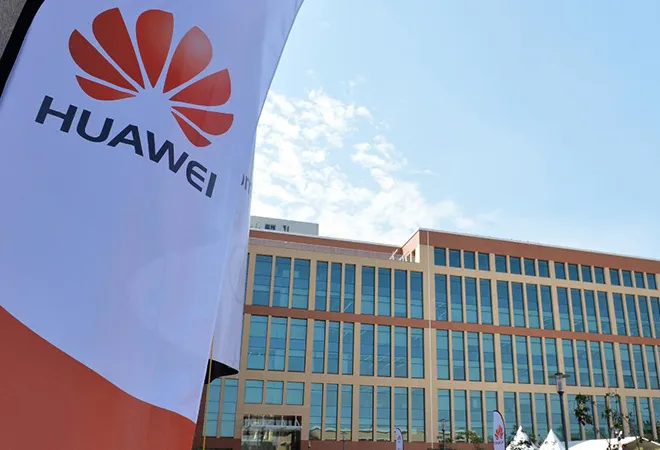That China is now a formidable global power is no longer in contention. Its global profile is much stronger than it was a decade back. Its military posture is getting more robust by the day, often at the expense of its neighbours. Its diplomatic heft is at an all-time high, making it virtually impossible to resolve global problems without China's proactive engagement.
Aggressive Trump
All nations want to court China today and even its worst critics have to contend with its presence in one way or another. What remains contentious is the debate if the present form of Chinese model is sustainable or not. The way the Chinese Communist Party has dealt with the outbreak of coronavirus or COVID-19 does not really inspire any confidence in the willingness of the party and its leadership to open itself to the world. Yet, for all its shortcomings, China has succeeded in making a credible claim to it being a global power.
One of the signs of China's emergence is the confusion it has created among those who have to respond to its rise. The West and its allies remain confused and divided even as Beijing continues to encroach on their peripheries. One of the most significant achievements of Donald Trump's presidency has been the manner in which it has shifted the Western discourse on China, where a hardnosed assessment of China's rise has become possible. There is now a growing consensus in the West that China's economic rise has been made possible by the foreign expertise and capital which it managed to acquire by forcing technology transfer, stealing intellectual property and exploitation of labour.
In 2018, US vice-president Mike Pence outlined the Trump administration's thinking on China when he argued, “China wants nothing less than to push the United States of America from the Western Pacific and attempt to prevent us from coming to the aid of our allies." He said, "the United States wants Beijing to pursue trade policies that are free, fair, and reciprocal" and outlined American policy responses to constrain China which included tighter rules on technology transfers, greater US military spending, and bilateral trade deals with other countries in the Indo-Pacific.
While the Trump administration has vigorously pursued trade and technology restrictions vis-à-vis China and along with the Democrats in the US Congress-enhanced military spending, it has still managed to find it difficult to fully get the backing of its allies in the West. At last week's Munich Security Conference, the US secretary of defense Mark Esper warned America's allies that it was time to "wake up" to the Chinese threat and the US secretary of state Mike Pompeo declared that the West was "winning" the conflict with China. But the response of the European allies was underwhelming. Many in western Europe see the Trump administration's unilateral approach to global politics as an equally big challenge as China. This was underlined by German President Frank-Walter Steinmeier when he argued, "Our closest ally, the United States of America, under the current administration, rejects the very concept of the international community."
The Huawei question
Though the EU declared China a "systemic rival" in March 2019, it has found it difficult to develop a consensus on how to treat China's rise. Germany, in particular, has been reluctant to offend China by explicitly siding with the American policy towards Beijing. Rebuffing Washington's pressures on its allies to ban Huawei, the world's biggest supplier of telecom gear, from new 5G networks, Germany has decided not to ban the Chinese telecommunications giant from competing for contracts to build its 5G networks and its interior minister has made it clear that Germany can't build a 5G mobile network without Huawei. This despite the US threatening that any nation that "chooses to use an untrustworthy 5G vendor will jeopardise our ability to share intelligence and information at the highest level".
A divided house
Last month, even the United Kingdom (UK) decided to continue using Huawei in its 5G networks, though with some restrictions, posing a challenge to American policy. Beijing had warned the UK there could be "substantial repercussions" to other trade and investment plans in case of a complete ban on Huawei. This decision has been heavily criticised in the US with Newt Gingrich, a former speaker of the US House of Representatives, describing it as a "strategic defeat" for his country.
This has also led to fissures between the UK and Australia with the deputy chair of Australia's intelligence committee comparing the UK's decision to let China build its 5G telecoms infrastructure to letting Russia construct it. With Australia and the UK both part of the Five Eyes intelligence alliance, this dispute can be seen as a precursor to tougher times ahead for the West in charting a coherent China policy. The China challenge is not an easy one to navigate as India too can attest. The West does not have a coherent strategy to manage China even after acknowledging the problems its rise has engendered. This is perhaps the surest sign that today China is truly a global power with an unprecedented ability to divide an alliance that managed to bring down even the mighty Soviet Union.
This commentary originally appeared in Mail Today.
The views expressed above belong to the author(s). ORF research and analyses now available on Telegram! Click here to access our curated content — blogs, longforms and interviews.




 PREV
PREV


